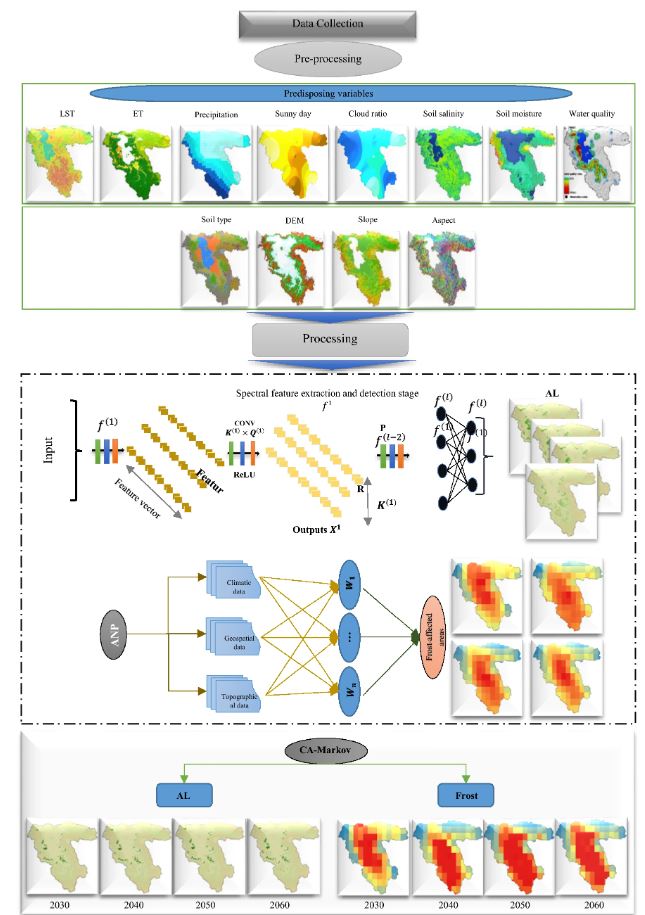An integrated approach of remote sensing and geospatial analysis for modeling and predicting the impacts of climate change on food security
January 19, 2023 | Scientific Reports |
Introduction: Climate change threatens agriculture, infrastructure, and local communities. Monitoring and predicting climate impacts on food security is essential, requiring advanced technologies like remote sensing and machine learning. Yet, integrated approaches remain scarce, especially in assessing frost impacts. An Iranian research team formed by University of Tabriz, Isfahan University of Technology, Bu-Ali Sina University team up with researchers based in Italy and US to analyze climate effects on food security in the Lake Urmia Basin.
Key findings: Through remote sensing and advanced modeling techniques, the research assesses changes in agricultural lands (AL) and frost-affected areas over the past two decades. Results indicate a decrease in AL and an increase in frost-affected areas, threatening food production. Analyses of various environmental variables reveal correlations between factors like temperature, precipitation, and soil quality with food security. Moreover, predictive modeling suggests worsening food security conditions in the future. The study highlights the urgency of addressing climate-induced challenges in the Lake Urmia Basin to safeguard food production and mitigate potential environmental crises.
Read more

Fig. | An overview of the presents study methodology.
Viewed Articles
January 19, 2023 | Scientific Reports |  Introduction: Climate change threatens agriculture, infrastructure, and local communities. Monitoring and predicting climate impacts on food security is essent
Read More
March, 2024 | Journal of Agriculture and Food Research |  Introduction: Climate change is undermining agrifood productivity and producer incomes, with small-scale farmers facing heightened exposure du
August 17, 2023 | Nature Food | Introduction: The study conducted by the University of Minnesota, Colorado State University, Chongqing University, and other institutions in the US and China delves int
October 09, 2025 | Crop Science |  Introduction: Traditional plant breeding often prioritizes explanatory models to understand biological mechanisms, which can limit the generalizability of selection
March, 2024 | Frontiers in Plant Science |  Introduction: Developing climate-smart agriculture requires cost-effective methods to characterize crop growing conditions. A research team from the America
January 01, 2024 | Molecular Plant | Source | Comment: Agricultural practices contribute significantly to atmospheric greenhouse gas emissions, with tillage accelerating soil disruption and carbon rel






